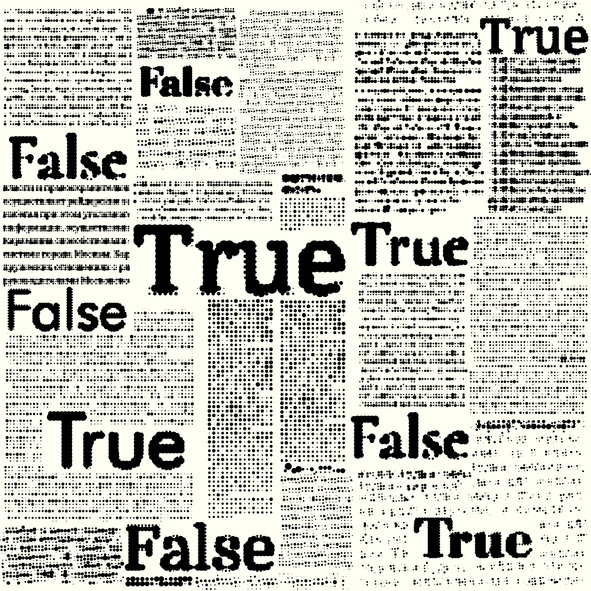The Kaiser Family Foundation (KFF) is tracking and combatting “health misinformation.”
KFF released a report, titled “KFF Health Misinformation Tracking Poll Pilot,” on August 23. KFF surveyed a sample of individuals in response to “the pervasiveness of false and inaccurate information about COVID-19 and vaccines.”
Public health officials have expressed concern over a new, highly mutated variant of the coronavirus, known as BA.2.86, renewing debate over how best to handle potential threats, though controversies surrounding policies adopted during the COVID-19 pandemic are far from resolved.
The tracking poll results are the first of several KFF plans to release that “will explore other health topics for which misinformation has been found to be circulating.” The report says erroneous claims are easily accessible and widely disseminated among certain groups.
“With this understanding, KFF is designing a new program that will identify and track the rise and prevalence of health-related misinformation in the United States, with a special focus on communities that are most adversely affected by health misinformation,” states the report.
Media Sources Matter
The survey examines what it says are “false claims” in four areas: COVID-19 and vaccines, reproductive health, gun violence, and the Affordable Care Act.
“Some groups seem to be more susceptible to misinformation than others, with large numbers of Black and Hispanic adults, those with lower levels of educational attainment, and those who identify politically as Republicans or lean that way saying many of the misinformation items examined in the poll are ‘probably true’ or ‘definitely true,’” KFF states.
Those who trusted conservative media sources were more likely to agree with false statements, says KFF.
“News sources also matter as sources as those who say they regularly consume news from One America News Network (OANN), Newsmax, and to a smaller extent Fox News, are likely to believe most of the misinformation items asked about in the survey,” the report states.
Racial Minorities Distrust Vaccines
Regarding COVID-19 and vaccines, the individuals surveyed were asked to identify as true or false certain statements, such as, “The COVID-19 vaccines have caused thousands of deaths in otherwise healthy people,” and “Ivermectin is an effective treatment against COVID-19.”
Specific racial and ethnic minorities are especially vulnerable to misinformation about the vaccines for COVID-19 and Measles, Mumps, and Rubella (MMR), says the report.
“Black adults are at least ten percentage points more likely than White adults to believe some items of vaccine misinformation, including that COVID-19 vaccines have caused thousands of sudden deaths in otherwise healthy people, and that the MMR vaccines have been proven to cause autism in children. Black (29%) and Hispanic (24%) are both more likely than White adults (17%) to say the false claim that ‘more people have died from COVID-19 vaccine than have died from the COVID-19 virus’ is definitely or probably true.”
‘Biased Polling System’
KFF’s survey of misinformation circulating during the pandemic does not address policies and supporting statements by public health agencies and officials, such as the Centers for Disease Control and Prevention, the Food and Drug Administration (FDA), and Anthony Fauci, that were contradictory and sowed confusion about the efficacy of masks, vaccines, and lockdowns.
KFF “has a biased polling system aimed at showing satisfaction and benefit of mass vaccination and other family issues,” Peter A. McCullough, M.D., MPH, a cardiologist and former vice chief of internal medicine at Baylor University Medical Center, wrote on his Courageous Discourse Substack, on August 23.
“I wonder what the actual sentiment is on vaccines if KFF had asked the questions in a more unbiased manner and did not load up their survey with charged words such as ‘false’ and ‘misinformation,’” wrote McCullough.
The release of KFF’s survey coincides with the FDA’s launch of a “Rumor Control” section of its website on “the growing spread of rumors, misinformation, and disinformation about science, medicine, and the FDA.” The webpage debuted nearly a year after FDA Administrator Robert Califf stated that controlling misinformation would be a top priority at the agency.
‘Right to Question’
The term “misinformation” really means a view “not held by the regime in power,” says Jeff Stier, a senior fellow at the Consumer Choice Center.
“The ‘misinformation’ tag is now being used to squelch healthy debate and censor dissenting views,” Stier said. “And perhaps most troubling, as the KFF survey shockingly admits, the term ‘misinformation’ is now being used to target racial and ideological groups (African Americans and Republicans) that authorities deem incapable of forming fact-based opinions. Obviously, one group especially vulnerable to misinformation has been left out of the discussion: federal health officials.”
Minorities are skeptical of the medical establishment, says Donna Jackson, director of membership development for the Project 21 black leadership network.
“Based on the medical profession’s recent history with these communities, black and brown people have the right to question their data and conclusions,” Jackson said. “What’s clear about this new poll tracker is that it appears to have started out with conclusions in search of supporting data. Scientific method and reasoning are being trumped by political biases and agendas pushed by the Biden administration in partnership with public and private entities to suppress information.”
Bonner Russell Cohen, Ph.D. (bcohen@nationalcenter.org) is a senior fellow at the National Center for Public Policy Research.
See related article, “Judge Sets Guardrails to Stop Government Censorship,” July 12, 2023
